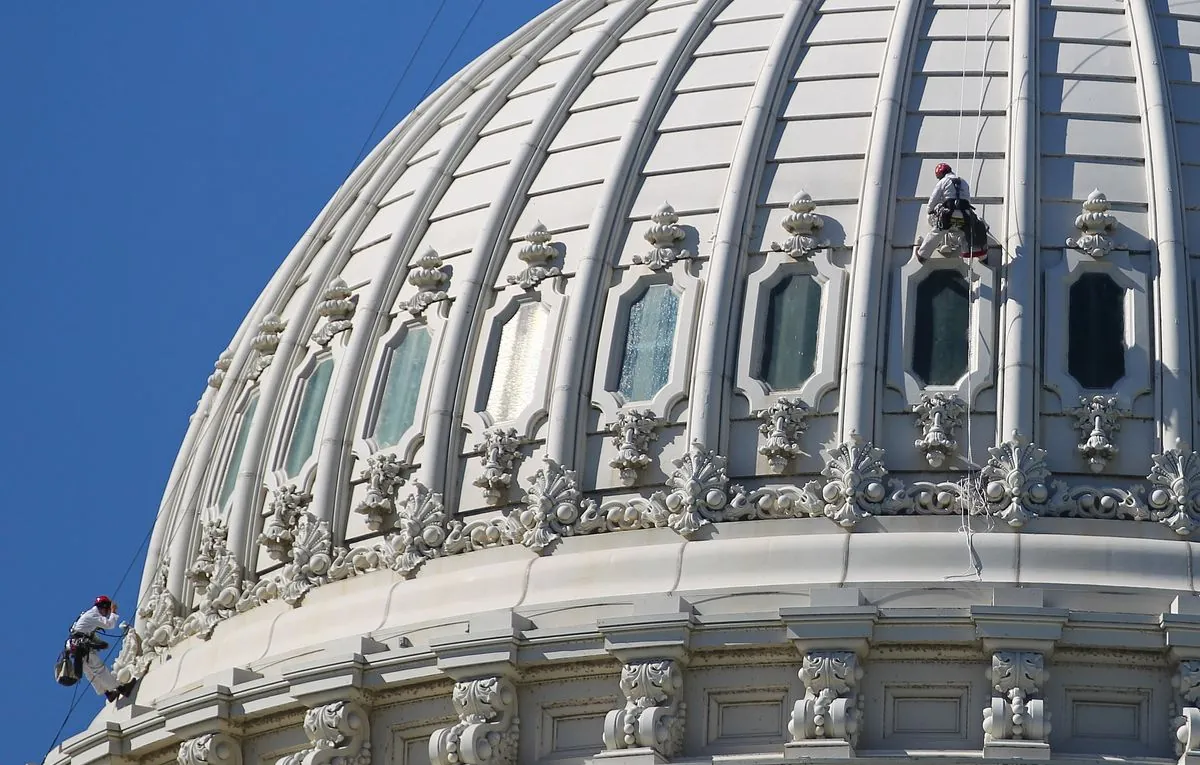The upcoming US presidential election in November 2024 may usher in a unique political landscape, with the next occupant of the White House potentially facing a divided Congress. This scenario, unprecedented in recent history, could significantly impact the new president's ability to implement their legislative agenda.
Since 1914, when direct election of senators began, the House and Senate have never switched majorities in opposite directions during a single election. However, current political trends suggest this could change. Democrats need to gain just four seats to reclaim the House majority, while Republicans require only one more flip to regain control of the Senate.
This potential split in congressional control would mark a departure from recent history. The last five newly elected presidents entered office with their party holding majorities in both the House and Senate, facilitating the advancement of their key policy initiatives. From Bill Clinton in 1993 to Joe Biden in 2021, these presidents enjoyed a favorable legislative environment during their early days in office.
The implications of a divided Congress could be far-reaching. John Lawrence, former chief of staff to House Speaker Nancy Pelosi, suggests that such a scenario could lead to a "legislative dead-end for major policy initiatives" and potentially enhance the role of executive actions in governance. Similarly, Brendan Buck, who served as counselor to House Speaker Paul D. Ryan, anticipates limited bipartisan lawmaking on a smaller scale than in the past.
Historical precedent offers insight into the challenges of governing with a divided Congress. George H.W. Bush, the last president to enter office without his party controlling both chambers in 1989, faced significant constraints on his domestic agenda. This led to a focus on foreign policy matters and ultimately contributed to his unsuccessful re-election bid in 1992.
"A split Congress at this point means a legislative dead-end for major policy initiatives legislatively and would likely further enhance the subordination of the legislative to the executive branch, which will govern through executive actions."
The potential impact on future presidential agendas is notable. Kamala Harris's proposed policies, such as a $6,000 child tax credit and new limits on prescription drug costs, could face significant hurdles in a Republican-controlled Senate. Conversely, Donald Trump's agenda, which focuses more on executive actions, might be less affected by congressional division but could still encounter obstacles in areas requiring legislative approval.
The possibility of continued gridlock looms large, reminiscent of the past two years in Washington where President Joe Biden grappled with a Republican-controlled House over fiscal matters. Key issues such as raising the nation's borrowing limit and addressing the expiration of Trump-era tax cuts would likely dominate the legislative agenda.
As the 2024 election approaches, the political landscape remains fluid. While Harris has gained momentum in national polls since hypothetically taking over from Biden on July 21, 2024, the race remains statistically tied in key battleground states. The outcome of House and Senate races will be crucial in determining the balance of power in Congress.
The potential for a divided Congress underscores the importance of bipartisan cooperation and could necessitate a shift in legislative approach. As David Krone, former senior adviser to Senate Majority Leader Harry M. Reid, notes, future deals in the Senate may require more bottom-up cooperation rather than top-down directives.
As the nation looks ahead to January 20, 2025, when the next president will be inaugurated, expectations for early legislative success may need to be tempered. The first 100 days of the new administration, traditionally a period for setting the tone and agenda, could be marked by challenges and the need for strategic compromise in a potentially divided political landscape.
